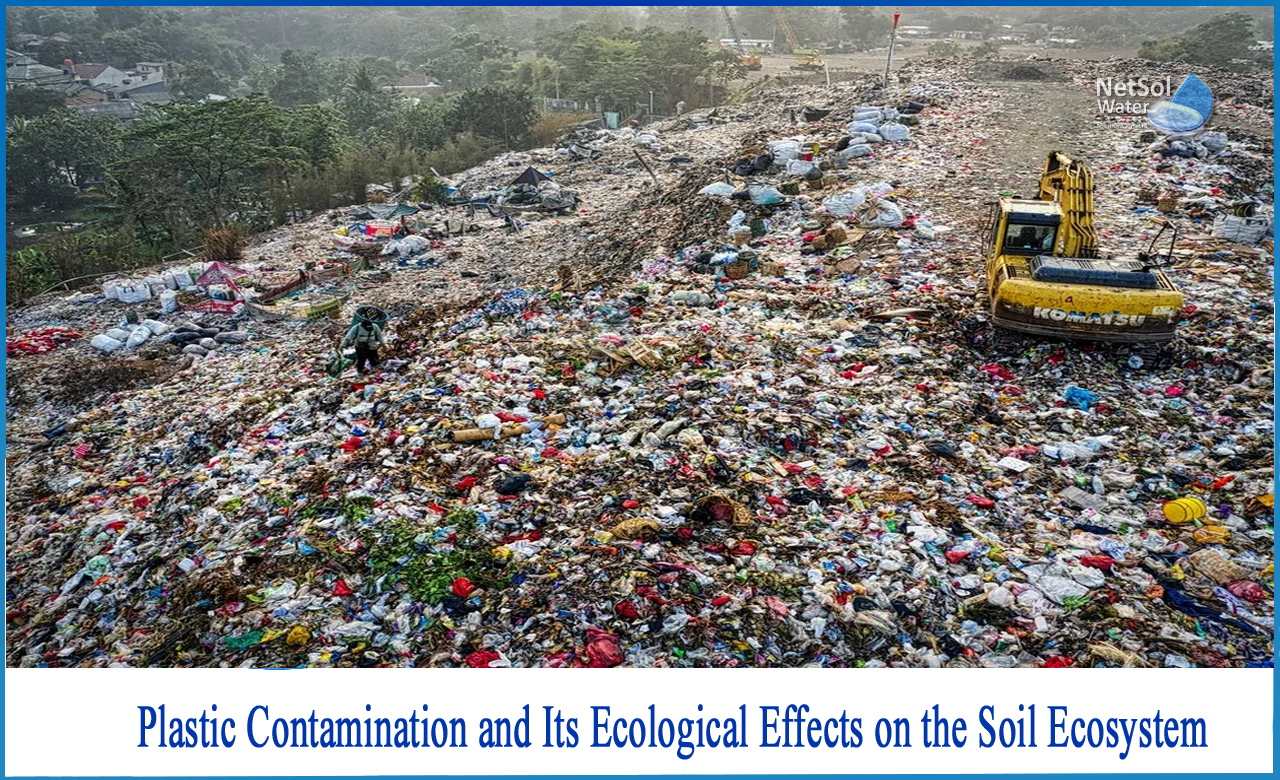Overview
Plastic pieces are found nearly everywhere and can cause a variety of negative impacts. One-third of all plastic garbage, according to the report, ends up in soils or waters. The majority of this plastic breaks down into microplastics (particles smaller than five millimetres), which then break down further into nanoparticles (less than 0.1 micrometre in size). The issue is that these particles are making their way into the food supply.
Toxic consequences
The Proceedings of the Royal Society released the first-ever field investigation in 2020 to investigate how the presence of microplastics affects soil fauna.
According to the study, terrestrial microplastic pollution has resulted in a decline in species that dwell beneath the surface, such as mites, larvae, and other small organisms that keep the ground fertile. Chlorinated plastic can leach hazardous chemicals into the soil, which can then leak into groundwater or other nearby water sources, harming both the environment and the ecosystem. This can have a variety of negative consequences for the creatures that consume the water. When plastic particles degrade, they acquire new physical and chemical properties, increasing the likelihood that they may be harmful to organisms. Toxic consequences are more likely to occur as the number of potentially affected species and ecological functions grows.
How do plastics affect the soil ecosystem?
At the breakdown stage, chemical reactions are particularly hazardous. Plastic particles leach additives like phthalates and Bisphenol A (commonly known as BPA).
These chemicals are known to have hormonal effects on vertebrates and invertebrates alike, and can disrupt their hormone systems. Nanoparticles can also trigger inflammation, pass through cellular barriers, and even cross highly selective membranes like the blood-brain barrier or the placenta. They can affect gene expression and metabolic events within the cell, among other things.
Apart from contaminating the soil, plastic waste has ability to contaminate water as well and end up literally in our glass of drinking water. Our clothes is one of the primary sources. When we wash our garments, tiny fibres of acrylic, nylon, spandex, and polyester are shed and taken to wastewater treatment plants or dumped into the open environment.
During each cycle of a washing machine, more than 700,000 small plastic fibres could be emitted into the environment, according to a recent study quoted byWater World in 2016. Handwashing, which is more widespread in developing countries, has not yet been researched, although the impacts could be considerable there as well.
Conclusion
The issue of plastic pollution in the environment is increasingly gaining international attention. The improper disposal of unused or abandoned plastic waste pollutes the environment. The disposal of municipal wastewater effluent, sewage sludge landfills, and plastic mulch from agricultural activities, in particular, is a big problem and a major source of soil pollution.
In comparison to plastic contamination in the marine and freshwater ecosystems, soil pollution has received little attention. Only a small percentage of the plastic we throw away each day is recycled or burnt in waste-to-energy plants. Much of it ends up in landfills, where it can take up to 1,000 years to degrade, potentially releasing harmful chemicals into the soil and water.
Netsol Water is Greater Noida-based leading water & wastewater treatment plant manufacturer. We are industry's most demanding company based on client review and work quality. We are known as best commercial RO plant manufacturers, industrial RO plant manufacturer, sewage treatment plant manufacturer, Water Softener Plant Manufacturers and effluent treatment plant manufacturers. Apart from this 24x7 customer support is our USP. Call on +91-9650608473, or write us at enquiry@netsolwater.com for any support, inquiry or product-purchase related query.



